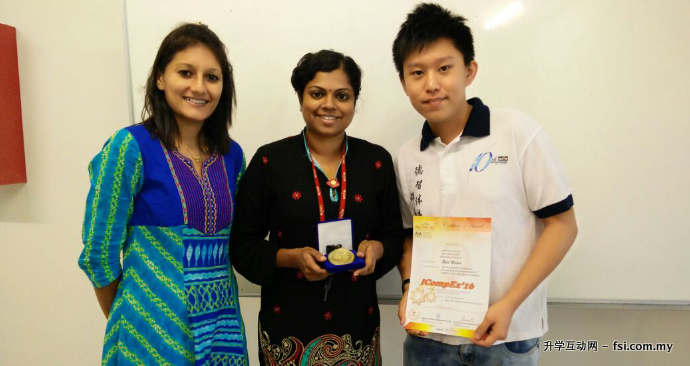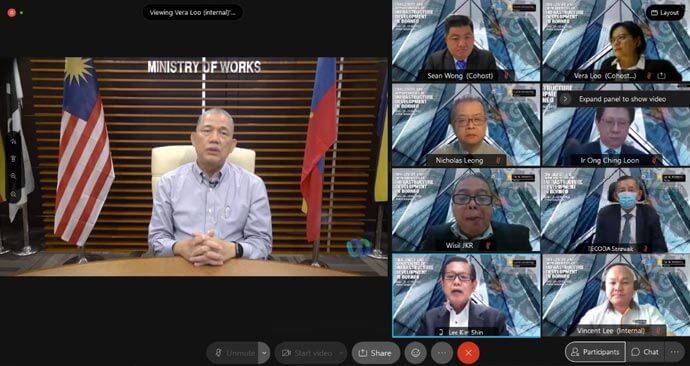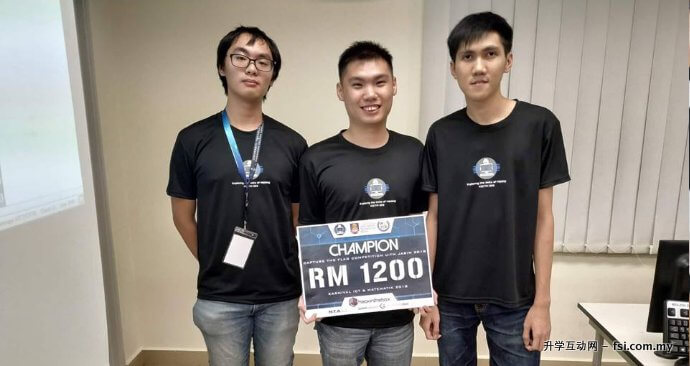UTAR Faculty of Information and Communication Technology (FICT) academics, namely Ts Dr Ooi Boon Yaik, Ts Wong Chee Siang, Assoc Prof Ts Dr Liew Soung Yue and Master of Science (Computer Science) student Tee Hong Le were awarded the Best Paper Award for their research paper titled “Cost-Effective Scraping and Processing of Real-time Traffic Data for Route Planning” at the International Conference on Computer and Information Sciences (ICCOINS 2020).
The ICCOINS 2020 is a conference of World Engineering, Science and Technology Congress 2020 (ESTCON 2020), organised by Universiti Teknologi PETRONAS (UTP) from 13-15 July 2021. The ESTCON 2020 provided an excellent centre stage for academics, researchers, scientists, engineers, interest groups and industry experts from all around the world to get together for knowledge sharing, intellectual discussions and networking on various areas of interest.
Themed ‘Sustaining Tomorrow with Digital Innovation’, the ICCOINS 2020 aimed to discover the sustainability impact and challenges of Industry 4.0 with its main pillars such as the Internet of Things, big data analytics, cyber-physical systems and cloud computing on the development of digital technologies and solutions for a sustainable future.
According to the researchers, the emergence of e-commerce has increased the demand for fast parcel delivery. “In order to provide excellent service to the customers, a logistics company will normally set up a number of outlets in different areas in a city so that the senders can submit their parcels to the nearest outlets. Upon receiving the parcels, the logistics company will sort and send these parcels to the nearby outlets to the receivers. The collection or delivery of the parcels between outlets needs a fleet of vehicles, and this problem then can be formulated as a vehicle routing problem. However, most of the existing algorithms proposed to solve vehicle routing problems assume that the travelling time between places is static. This may not be realistic because the traffic in the real world is rather dynamic which causes the travelling time from one place to another to vary over time. This affects the accuracy of time-cost estimation for the logistics company during their parcel delivery process. The acquisition of accurate time-cost estimation is normally very expensive, and it might not be affordable to the logistics companies,” the researchers explained.
“Thus, this paper will mainly focus on a low-cost solution to effectively scrap, pre-process, and analyse the real traffic data to provide precise route planning algorithms, with correct time-cost inputs to improve the accuracy of time-cost estimation for the logistic company. The importance of effective and efficient scraping is also stated as the path provided by real-time traffic map’s website is not optimal when traffic conditions are heavier,” they added.
The team said that they were inspired to do this project after reading a few research papers related to the Vehicle Routing Problem. They discovered that many route planning algorithms did not include accurate traffic data in their research, which could result in impractical planning even if the algorithm could be robust. Hence, the team came up with an idea to collect the traffic data and pre-process it to allow the route planning algorithms to be applicable in real-world situations.
Moreover, the team also explained that this research will bring a positive impact to society and the environment as the cost-effective and analysed traffic data will produce a higher accuracy traffic data report. This high accuracy data will enable better routing decisions in real-world situations. This research, therefore, could benefit the logistics industry, as good route planning could reduce operational costs.
The team believe they were able to solve a practical and important problem with a low-cost yet effective solution. Furthermore, the research is significant and relevant especially with the emergence of e-commerce in this era, which has increased the demand for fast parcel delivery.
Taking this opportunity, the researchers extended their sincere gratitude to the Ministry of Higher Education Malaysia for supporting their research through the Fundamental Research Grant Scheme (FRGS). In addition, they also thanked UTAR for providing unwavering support for this research via the Top-Up Scheme.
The research is related to Sustainable Development Goal (SDG) 11 which is “Sustainable Cities and Communities”. It yields a sustainable impact since it focuses on making the cities inclusive, safe, resilient and sustainable.

Certificate of appreciation
Online Education Fair 线上教育展
Universiti Tunku Abdul Rahman (UTAR)
拉曼大学
https://edufair.fsi.com.my/utar












